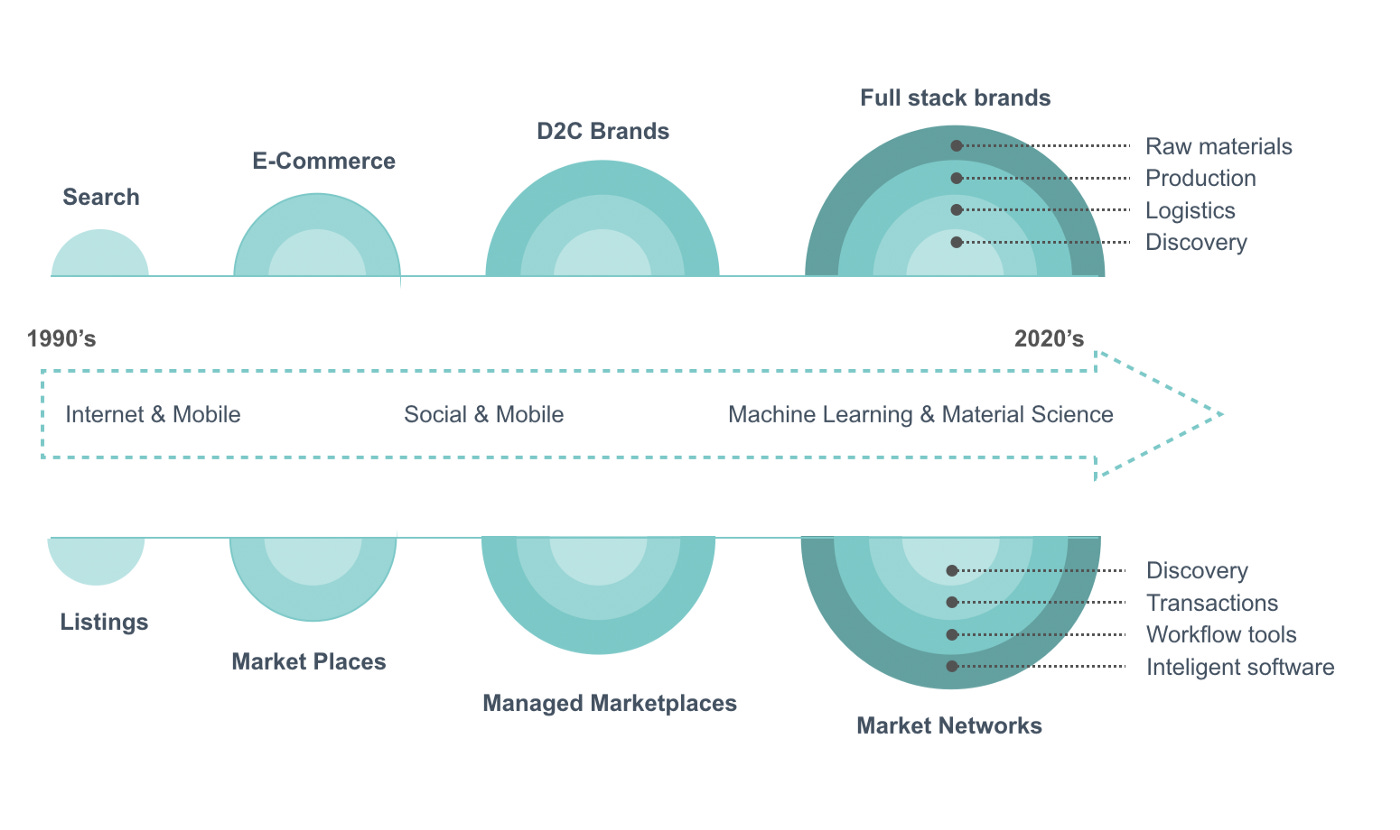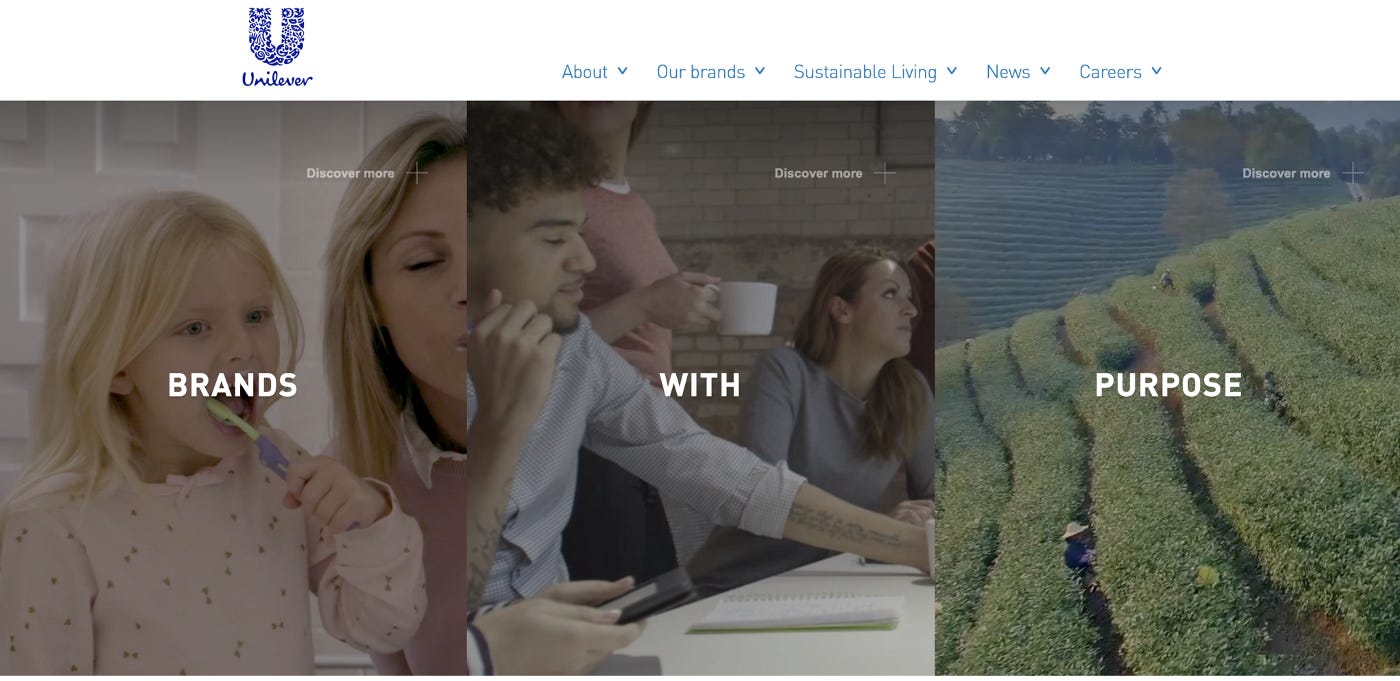Great venture investing is about finding, backing and supporting founders who are building industry defining companies.
This comes with a responsibility to consider the social and environmental impact of these companies. At Eka, we take this responsibility seriously and we don’t see it as a compromise. We see it is an opportunity and our most important value driver.
Camilla, Andrew and I set up Eka to back sustainable consumer technology companies. We define these as companies that use technology to:
enable affordable access to essential consumer needs and / or
dramatically decrease the environmental impact of a major industry.
We are focused on consumer tech because we believe that is where venture investing has the opportunity to build the greatest value and impact. It is where the largest companies are built and the underlying source of true industry disruption. What, and how, we consume defines the global economy, where the shareholder value is created and the impact humans have on each other and the environment. Between 60 & 80% of global environmental impact is created by household consumption.
There are two mega trends at play today that mean sustainable consumer technology companies are the largest shareholder value opportunity of the next 20 years.
Trend 1: Demand
People increasingly care about where they spend their money (customers), where they earn their money (talent) and where they invest their money (capital). Customers, talent and capital are the three drivers of shareholder value in any company.
This shift in demand is heavily supported by large data sets and it is here to stay. It is mainstream, global and across all income and age demographics but it is not soft. Customers will not compromise on quality or price, talent does not want to compromise on income & capital will not compromise on returns. And this is where trend 2 comes in!
Trend 2: Technology
In the past we have talked about online consumer businesses, this term is now out of date. The leading consumer technology businesses of today are integrated into the physical world. They are applying digital technology, mechanical engineering and material science across offline and online retail, service provision, logistics, manufacturing and raw materials. The difference between them and the old incumbents is not whether they sell online, it is whether they connect and act on the data across their whole supply chains. Ben Evans of a16z did a brilliant talk on this, “the end of the beginning”.
Companies that apply technology in this way can deliver products and services that would previously not have been possible and they can drive down the cost at the same time. This increase in capability and efficiency comes from removing steps from the supply chain, reducing waste and reducing the cost of the raw materials that enter the chain. For the first time becoming more sustainable is not a compromise on quality or price. It is not something a business does on the side in the name of ESG or corporate responsibility. It is a core part of their DNA and the way they make their product or deliver their service.
These companies deliver products and services that are innovative, affordable and sustainable and they enter in to a three step virtuous circle of value creation:
Step 1: by using technology to build more capable, lower cost supply chains they tap in to mainstream consumer demand with innovative and affordable products. These companies can grow faster at a lower cost.
Step 2: by building with a clear & impactful purpose they tap into to the demand shift. They are better able to attract and retain customers and talent. Further accelerating the profitable growth catalysed by step 1.
Step 3: Finally, these faster growing, more profitable and purpose driven businesses have better access to capital and, ultimately, are more attractive to acquirers.
Founders who tap in to these steps of value creation build companies that have a huge competitive advantage. They will be the industry changing companies of the next 20 years. These are the founders that we set Eka up to back.
We are right at the beginning of this trend but you can see it happening. You can see it in the positioning of large brands like Ikea, Unilever and Nike.
You can see it in the way that Tesla has changed the automotive industry. You can see it in the growth of venture backed businesses like Heul, Gousto, and Benevolent AI. These businesses are driven by a core purpose beyond simple shareholder value, but it is that very purpose that is driving their outperformance in the traditional sense of the word.
We know that putting sustainability in our thesis was a risk. A risk that people won’t understand what we are doing, brand us as soft and think we will compromise on investor returns.
We believe it was a risk worth taking. We want entrepreneurs building these companies to know that we stand for the same thing they do. That we have done the hard work to put together a group of investors that share our and their vision for the future.







